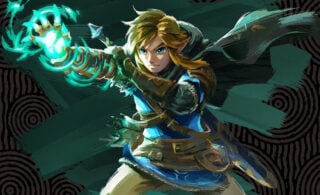Poppy Playtime studio sues Google for not pulling ‘scam’ imitator apps from its store
Mob Entertainment says fake Poppy Playtime games have been on Google Play for months

The studio behind the popular Poppy Playtime series is suing Google for not taking enough action to remove fake imitations from the Google Play store.
The episodic survival horror series has gathered a large following, despite concerns that it attempts to appeal to a younger audience than its horror themes are suitable for.
Its huge success has inevitably led to imitators appearing on various digital game stores, but according to series developer and publisher Mob Entertainment, there are two fake Poppy Playtime games in particular that it believes Google is failing to remove.
Usually if a game or app is released on a digital store which infringes on a copyright, that store’s owner is protected by ‘DMCA Safe Habor’, which means they can’t be held responsible for the infringement as long as they take it down when requested.
However, according to a lawsuit filed on Wednesday against both Google and the creator of the fake games (as reported by TorrentFreak), Mob Entertainment argues that Google “forfeited the benefits of the DMCA’s safe harbor provision” because they’re still on the Google Play store despite a takedown being filed on October 31, 2024.
The apps in question, titled Poppy Playtime: Chapter 3 and Poppy Playtime: Chapter 4 and attributed to a developer called Daigo Game 2020 Inc, allegedly contain numerous copyrighted designs owned by Mob Entertainment and directs players to buy a “guide wuggy playtime mod” for anything from $30 to $95. Players who pay for it are allegedly sent to a dead URL.

According to a timeline provided by Mob Entertainment, Google acknowledged that it had received a takedown request for Chapter 3 on November 1, but a month later had yet to respond.
Mob Entertainment says it then contacted Google again on December 5, after which the Chapter 3 app was removed on December 9.
However, on December 13 the app was relisted on the site with the same URL, and Mob Entertainment argues that – despite informing Google on the same day that the Chapter 3 app had returned, and despite getting receipt confirmation from Google – the Chapter 3 and Chapter 4 apps are still on the Google Play store to this day.
VGC can confirm that both fake games can still be found on the Google Play store. According to Google Play’s stats, the imitation Chapter 3 app has been downloaded more than 1 million times, while Chapter 4 has been downloaded more than 50,000 times.
Mob Entertainment alleges that Google receives 15-30% of the money made from the unauthorised sales in the apps, and that because it has failed to take proper action to respond to DMCA notices both it and the fake apps’ developer Daigo Game 2020 are liable.
The studio seeks compensation for copyright and trademark infringement, which includes statutory damages of $150,000 per work, as well as an injunction preventing Google and Daigo from further infringements.



